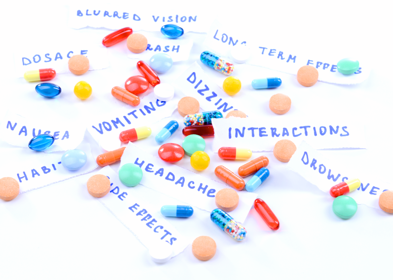Warning! COVID-19 Clinical Care: Alert About Drug Interactions When Treating COVID-19 Patients With Anticancer Drugs While On Antivirals
Source: COVID-19 Clinical Care Jul 04, 2020 4 years, 9 months, 3 weeks, 1 day, 7 minutes ago
COVID-19 Clinical Care: Researchers are expressing that more safety data is needed in terms of treatment of symptomatic COVID-19 patients on antivirals with anticancer drugs.

A report published in the
European Journal of Cancer by a group of French investigators led by Dr Paul Gougis of the Department of pharmacology, Hôpital Pitié-Salpêtrière in Paris, France summarized classes of immunosuppressive anticancer drugs and provided a summary of pharmacokinetic and pharmacodynamic interactions between anticancer drugs and some of antiviral drugs that are currently tested against COVID-19.
https://www.ejcancer.com/article/S0959-8049(20)30302-6/fulltext
The medical and pharmacology context is very relevant in the era of COVID-19, as more safety data is needed to support decisions for treatment of symptomatic COVID-19 patients with anticancer drugs.
The researchers said that the patients treated for hematological malignancies and solid tumors have a four times higher risk of hospitalization due to influenza infection, and a ten times higher risk of death. This could be due to their age, comorbidities, lymphopenia, or the immunosuppression caused by anticancer drugs.
The study team emphasized that safety data are lacking, and it might not be safe to treat symptomatic COVID-19 patients with immunosuppressive anticancer drugs which increase infections. Anticancer drugs that increase either neutropenia or infections are cytotoxic chemotherapy, proteasome inhibitors, histone deacetylase inhibitors, anti-CD20 therapy, PI3K-AKT-mTOR pathway inhibitors, BCR-ABL inhibitors, FLT3 inhibitors, MEK inhibitors, JAK inhibitors, BTK inhibitors, CDK4-6 inhibitors, PARP inhibitors, and multikinase inhibitors.
TableA - Class of anticancer drugs with immunosuppressive properties. Immunosuppressing drugs were defined as drugs associated with significantly more infections or neutropenia compared with the control group or placebo in trials. These drugs were excluded from part B. B - Summary of pharmacokinetic (PK) and pharmacodynamic (PD) interactions of interest concerning non-immunosuppressive anticancer drugs and potential COVID-19 treatments. No interaction driven by other cytochromes was found.
.jpg) ∗Tamoxifen is a prodrug and the reported effect is on the active metabolite endoxifen.
∗Tamoxifen is a prodrug and the reported effect is on the active metabolite endoxifen.
Red arrows are for interactions relying on clinically significant data. Orange arrows are for interactions relying on in vitro data for pharmacokinetic interactions. Cytochromes involved in the drug interaction were specified. Substrates for which induction but not inhibition could lead to significant interaction are between brackets. When the interaction modifies the pharmacokinetics of the
anticancer drug, the arrow was on the bottom-left. Antiviral exposition prediction is on the top-right. Red boxes are for anticancer drugs with known torsade de ointes risk and high risk of renal and liver toxicities. Orange boxes are for anticancer drugs prolonging QT without known torsade de pointes risk and moderate risk for renal and liver toxicities. Data from FDA labels were retrieved for drug metabolism, QT prolongation and nephrotoxicity. LiverTox database was used for hepatotoxicity CQ: chloroquine; GnRH: gonadotrophin-releasing hormone; HCQ: hydroxychloroquine; Id: cytochrome inducer; Ih: cytochrome inhibitor; Lopinavir/r: lopinavir/ritonavir association (KALETRA®); S: substrate Credits: Elsevier
Significantly, the authors underlined that it is not clear yet, if in case of COVID-19, anticancer treatments should be stopped. And it is also not known, if the treatment is interrupted, what is a safe time to resume it. Therefore, it is difficult at present time to decide on prescription of antiviral drugs concomitantly with non-immunosuppressive anticancer therapy.
When comparing the situation with antiretroviral drugs for treatment of HIV, the researchers underlined that anticancer drugs and antiviral drugs have a narrow therapeutic index and pharmacological interactions are possible.
The study team said that some of them are substrates or interact with CYP3A4. As an example they stated enzalutamide which is a non-steroidal antiandrogen for the treatment of prostate cancer. In particular, it is both a CYP3A4 substrate and inducer. Ritonavir is a pharmacokinetic booster of lopinavir investigated in the treatment of COVID-19. Ritonavir is a substrate and a potent CYP3A4 inhibitor. Therefore, enzalutamide and ritonavir could interfere in terms of metabolism, decreasing or increasing each other’s clearance, and cause severe side effects or be responsible for decreased efficacy.
The drug favipiravir is also investigated for the treatment of COVID-19. It is a CYP2C8 inhibitor, and may increase anticancer drugs that are metabolized through this pathway, in particular dabrafenib and enzalutamide. Furthermore, dabrafenib and enzalutamide are CYP3A4 inducers and could significantly decrease hydroxychloroquine concentration during the first week of wash-out.
Most importantly In terms of pharmacodynamic interactions, prolongation of QT interval is of particular clinical importance. Hydroxychloroquine and azithromycin prolong QT interval. Concomitant use of anticancer drugs that prolong QT interval could lead to Torsade-de-Pointes and consequently be fatal.
The researchers warned that electrocardiographic monitoring should be implemented to monitor duration of QT interval during such combination therapy.
It should also be noted that anticancer drugs could also potentiate nephrotoxicity and hepatotoxicity of antiviral drugs.
For more on
COVID-19 clinical care, keep on logging to Thailand Medical News.

.jpg)